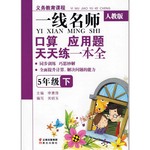题目内容
It was silent in Mom’s hospital room. Only the sound of her heart monitor interrupted the moments of what seemed to be a peaceful sleep. It had been several hours since her operation. I wanted her to wake up. I needed to to her. Last night, I shouted at her because she had allowed my sister to visit her when she had our mom for years.
“Shame on you!” she had said firmly. “Moms don’t stop their children just because one of them chose to leave her. A mother always loves more than she’s loved .”
I thought, “Shame on you! When I do something wrong or when a friend is to her, that’s all she will ever say. How about standing up for you for once, Mom?”
My mom’s groaning(呻吟)broke my . she couldn’t speak, her eyes were moving, looking for something. She her notebook and pen next to her bed. I gently handed them to her. She slowly, and then turned the notebook around for me to read.
“I forgive you,” it .
Tears ran down my face. I felt . As I began to speak, I was by the loud arguing of two seemingly angry nurses on the opposite side of the room. My mom suddenly began writing on her notebook, and then stopped to the piece of paper. She handed it to me, signaling me to give it to the nurses. They read it, looked at my mom and quietly left the room.
“What did you write, Mom?” I asked.
She smiled sweetly but said nothing. , I knew what she had written on that piece of paper. How those three little words are!
I kissed my mom goodbye and to find my sister.
1.A. quiet B. long C. sweet D. important
2.A. explain B. agree C. refer D. apologize
3.A. selfish B. poor C. weak D. jealous
4.A. attacked B. hurt C. abandoned D. criticized
5.A. helping B. missing C. loving D. protecting
6.A. in place B. in turn C. in time D. in return
7.A. unkind B. special C. strange D. new
8.A. family B. children C. rights D. freedom
9.A. promise B. sleep C. words D. concentration
10.A. and B. but C. since D. so
11.A. pointed to B. picked up C. looked through D. reached for
12.A. said B. wrote C. read D. moved
13.A. wrote B. said C. told D. suggested
14.A. annoyed B. worried C. ashamed D. confused
15.A. kept B. frightened C. angered D. interrupted
16.A. check over B. stare at C. tear off D. take out
17.A. proudly B. gratefully C. coldly D. carefully
18.A. Suddenly B. Finally C. Gradually D. Clearly
19.A. easy B. typical C. exact D. powerful
20.A. left B. tried C. called D. expected
1.A
2.D
3.A
4.C
5.C
6.D
7.A
8.C
9.D
10.B
11.A
12.B
13.B
14.C
15.D
16.C
17.B
18.A
19.D
20.A
【解析】
试题分析:本文讲述了作者因母亲让多年前抛弃自己妈妈的妹妹来看自己而吵架,导致母亲住院。母亲清醒后,虽口不能言,却原谅了作者,作者感到十分羞愧。母亲用“真丢脸”三个字劝走了正在吵架的护士,使作者认识到母亲对子女的爱,决定去和妹妹缓和关系。
1.考查形容词。Quiet安静的;long长的;sweet甜的;important重要的。前面一句提到病房里很沉默,由此可知是安静的环境。故选A。
2.考查动词。 explain 解释;agree同意;refer提到;apologize道歉。后面提到我向她大声喊叫,因此这里道歉符合语境。故选D。
3.考查形容词。selfish 自私的;poor可怜的;weak虚弱的;jealous嫉妒的。后面提到妹妹一起妈妈很多年,可知妹妹是自私的。故选A。
4.考查动词。attacked 攻击;hurt伤害;abandoned 抛弃;criticized批评。句意是:她已经放弃了我们的妈妈多年。故选C。
5.考查动词。 helping 帮助;missing想念;loving爱;protecting保护。根据常理可知母亲是爱孩子的,即使孩子选择离开她。故选C。
6.考查词组。 in place适当;in turn轮流;in time及时;in return作为报答。 句意是:妈妈的爱总比她得到的爱要多。故选D。
7.考查形容词。Unkind不厚道的;special特殊的;strange奇怪的;new新的。句意是:当我做错了什么或者当一个朋友刻薄她时,她会说。故选A。
8.考查名词。 Family家庭;children孩子;rights权利;freedom自由。句意是:这一次如何维护你的权利,妈妈。故选C。
9.考查名词。 Promise允诺;sleep睡觉;words词语;concentration专注。前文提到我正在专注于想和妈妈发生的事情,此处妈妈的呻吟打断了我的专注。故选D。
10.考查连词。And并且;but但是;since从;so所以。句意是:她不能说话,但是眼睛移动,找什么东西似的。故选B。
11.考查词组。pointed to指向;picked up捡起;looked through看穿;reached for伸手去拿。后面说我递给她笔记本和笔,可知是母亲指向笔记本和笔。故选A。
12.考查动词。Said说;wrote写;read读;moved移动。根据常理可知拿上笔和本后是写字。故选B。
13.考查动词。Wrote写;said说;told告诉;suggested建议。写出来的话可用say。故选B。
14.考查形容词。 annoyed 恼怒的;worried 担心的;ashamed惭愧的;confused困惑的。前面提到作者泪流满面,四选项中只有C项符合语境。故选C。
15.考查动词。Kept保持;frightened害怕;angered 生气;interrupted打断。句意是:当我正要说话时,被两个在房间对面看是生气的大声争吵的护士打断了。故选D。
16.考查词组。check over检查;stare at凝视;tear off撕下;take out取出。句意是:妈妈卡是在笔记本上写字,写完后撕下那张纸。故选C。
17.考查副词。proudly 傲慢地;gratefully感激地;coldly 冷淡地;carefully小心地。后面说安静地离开,可知情绪变好了,四选项中只有B符合语境。故选B。
18.考查副词。Suddenly突然;Finally最终;Gradually逐渐地;Clearly清晰地。句意是:她甜甜地笑了,但什么也没说。突然,我知道她写了一张纸。故选A。
19. 考查形容词。easy 容易的;typical典型的;exact准确的;powerful强大的。是争吵的人平静离开,由此可知这句话的强大力量。故选D。
20.考查动词。Left离开;tried试着;called呼叫;expected预期。前一句说吻别,因此可知作者是要离开。故选A。
考点:考查故事类短文

 新课标同步训练系列答案
新课标同步训练系列答案 一线名师口算应用题天天练一本全系列答案
一线名师口算应用题天天练一本全系列答案